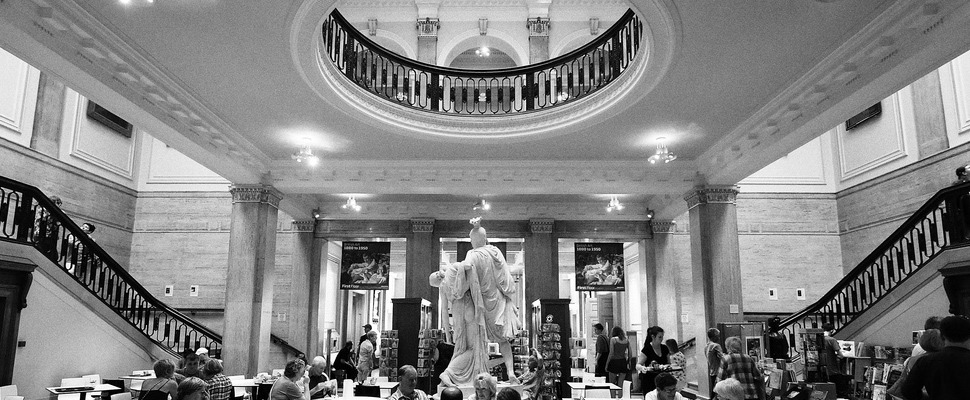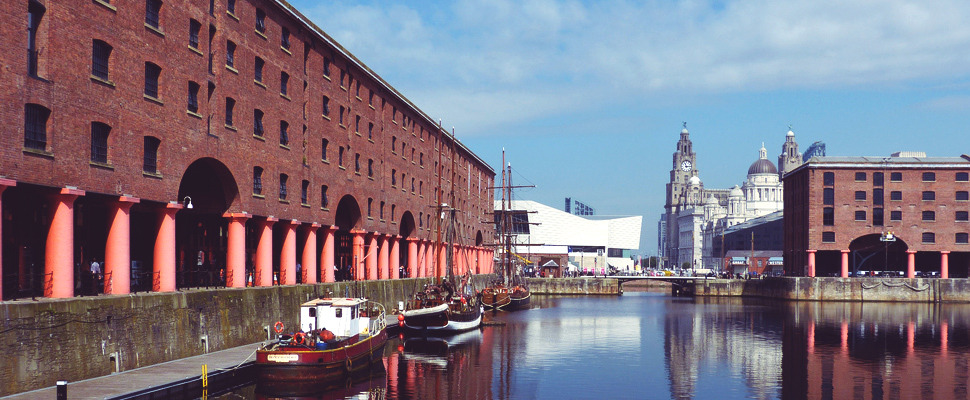Life in the Slow Lane
What does the Government's proposed new route for the next stage of its High Speed rail network actually mean for Liverpool? NEW: Read our MP's responses below.
Today the Government announced its HS (high speed) 2 route, scything through the countryside from Birmingham to all points north. Well, when we say ‘all points’ we mean Manchester and Leeds, and major cities such as Preston, York, and Crewe. Manchester’s a given, naturally - and it gets two new stations.
Liverpool? It remains silting up on the sidelines again.
When the line’s completed, journey times will be slashed making York and Preston, in effect, closer to the capital.
But it’s not just about times to London, the journey times between HS2 cities will be supercharged too - making, effectively, a two tier transportation system between the north’s major conurbations. For companies with clients dotted around the north, Liverpool will be in the slow lane, a city which is already developing slower than Manchester and Leeds - and, thanks to missing out on last year’s fibre optic broadband grants from central Government, will slow down even more relatively.
After the line’s completion in 2026, Manchester would be 41 minutes from Birmingham and only 1 hour 8 minutes from London, almost halving the current average rail journey times. Leeds would benefit from similarly dramatic reductions, with Birmingham taking less than 1 hour and London 1 hour and 22 minutes.
The stations in Leeds, Sheffield, the East Midlands and Birmingham would each be separated by a journey of less than 20 minutes, making daily commuting easy and providing a high speed line that would integrate their economies as never before.
Manchester Airport would be 32 minutes from Birmingham and 59 minutes from London. The station serving Birmingham Airport would be 38 minutes from London Euston and would gain better direct rail access to Manchester and Leeds. And, with a new station for Manchester Airport, Liverpool John Lennon Airport’s future starts to look ever bleaker.
Last week, Manchester Council bought Stanstead airport. There’s a city that’s really going places - it now owns two of the country’s top five airports (and, in the past year, it’s overtaken us in the number of Easyjet routes). This week, The Governement effectively said Liverpool is less important than Crewe. And why? Because we’re a bridge too far away from the mainline…
In their document, they say:
“We looked first at whether it would be possible to ‘gauge clear’ routes to Liverpool to allow running captive high speed trains there. To do so would be very disruptive to the existing railway. Our high level work found it to be prohibitively expensive, owing to the number of bridges and other structures on the railways into Liverpool, so we did not progress it.
We then looked at whether it would be possible to connect to the existing railways into Liverpool near Warrington, allowing classic compatible trains to run into Liverpool. This could allow a fastest London to Liverpool journey time of 1 hour 26 minutes. It could also allow Warrington to be served.
Our demand model analysis saw an increase in passengers from Liverpool and a near doubling of passengers coming from Warrington indicating the benefit of serving it by HS2. However, the level of benefits would only provide at best a marginal business case for a connection near Warrington because of the cost of the infrastructure to connect (between £390 million and £690 million).”
In the end, the Government has favoured a model that helps support growth in Crewe and North Wales:
“Our modelling showed that these other markets are important in terms of generating benefits and revenue. Crewe, for example, would warrant two trains per hour from London. Although we started looking at how best to serve Liverpool, it became clear that these other markets are an important part of the picture in choosing where to connect to the existing classic network and what stopping patterns to run.”
In summary, our analysis suggests that the strongest economic case would be for a connection at Crewe, giving a faster potential journey time to Liverpool and Warrington, but also allowing intermediate markets including Crewe to be served and bringing benefits to the wider area through its connectivity. The case for this is stronger than that for a connection further north near Warrington as the costs and sustainability impacts would be significant and intermediate markets could not be served by trains using such a connection. The loss of serving those markets would outweigh the incremental benefits to Liverpool and Warrington.”
What do you think? How many bridges would it take for them to turn HS2 away from London, or Manchester? It simply wouldn’t be an issue, would it?
Why do you think Liverpool’s case is only considered to be of ‘incremental’ benefit, yet Manchester, Preston, Crewe and York’s is considered to be of greater importance? Does half an hour here or there make any difference? Or does it, when combined with the hundreds of millions the Highways Agency’s spent on Manchester’s M60 orbital, the same city’s tram extensions and improved connections between Victoria and Piccadilly stations, signal a real shift away from Liverpool and towards our northern neighbours?
A couple of weeks ago, Joe Anderson held a cuts summit in the city, drawing attention to the Draconian slashing of our public funding. An important issue, for sure. But leave Liverpool in the hinterlands of the nation’s transport network and the case for bringing international businesses here (surely our only route to a healthy economic future) looks like it’s stalled just as it’s got itself into gear.
What our MPs said in Parliament:
Curiously, Maria Eagle (Garston and Haelwood) is ’100% behind the project’ and, on the specifics of the route, could only bring herself to say: “will the Secretary of State accept that today’s decision to kick into the long grass how HS2 will connect to Heathrow is a major error?” She didn’t mention Liverpool at all. Not once.
Louise Ellman (Liverpool Riverside) said…
I welcome today’s statement, which represents important investment for the future, but will the Secretary of State confirm that that will be part of investment in an integrated national rail system so that areas that are not on the high-speed line will benefit, too?
In reply, Patrick McLoughlin (Derbyshire Dales, Conservative) said:
“Indeed I can. I am grateful to the Chairman of the Select Committee on Transport, who I know will probably want to carry out a detailed inquiry into this matter. Although it is true that some areas are not covered by high-speed rail at the moment, it will go up to Birmingham in the first instance and then to Manchester, and journeys will be able to carry on from there, as they do in Kent on the line that goes down to Ashford.”
The MP for Wirral, Alison McGovern said:
High Speed 2 is incredibly important for all of Merseyside and our city region’s development. Further to the answers that the Secretary of State has given already on connectivity, will he confirm that the northern hub should not be the end of better inter-city rail services in the north of England, but the start and that we need to start planning for better now?
Patrick McLoughlin replied:
Yes. I was in Liverpool and met the mayor a few weeks ago. It was substantially easier to get from London to Liverpool than it was to get from Liverpool back to Derby.
And Frank Field (Birkenhead, Labour) added:
I direct the Secretary of State back to the question about construction beginning in the north. Given that London is all-powerful and will see this project completed, if it is in London’s interest, will he take a new stance on the hybrid Bill? If the leaders in Liverpool, Manchester and Leeds could fit in with his timetable, might we have a hybrid Bill please?
Patrick McLoughlin replied:
Of course I will consider the representations, but it is not so much a question of those leaders of cities in the north fitting in with the timetable, but of the other areas we have to address in the proposals. We are out to consultation, and the right hon. Gentleman will have heard that some people are not too happy with the route proposed and would like changes and adjustments to be made. That takes time, and once we have settled on the route—as I said, we are out to consultation, which means I have not settled on one—we will have to carry out environmental assessments and the like, which I am afraid take considerable time. I am keen to get on with this as quickly as possible, but I am constrained by what we need to do.

























» City Living » Life in the Slow Lane
20